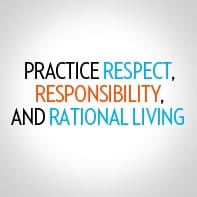Fight off Learned Helplessness & Depression by enlisting Motivation
Motivation is not about desire it’s about effort. The more effort, the more motivated!
Fight off Learned Helplessness & Depression by enlisting Motivation through Challenge and Reward.
If you are feeling bland about life, then stop to take an inventory of your environment for the necessary challenges and rewards needed to feel motivated.
In addition to clinically depressed people (as defined by the DSM IV, American Psychiatric Association), I see many clients in my practice who discuss feeling “off”, irritable or just plain dissatisfied with life. They may or not necessarily feel “sad”.
They complain they lack motivation and interest in doing anything, perhaps blaming feeling tired, easily distracted or disengaged. They will commonly describe themselves as being lazy and a chronic procrastinator. Like clinically depressed people they may find that their sleep and appetite patterns are disrupted and they have an overly emotionally reaction. However, their main focus is on their lack of inertia and motivation, and the strong impact it is having on their performance and expectations about reaching life long objectives.
These states are largely caused and maintained by lack of challenges and rewards in the environments we operate (e.g. work, home, social, gym, etc.). Rewards need to be obtainable and perceived as attainable.
Why? Well if we don’t think there is an obtainable reward we stop exerting effort and if we stop exerting effort its unlikely we will succeed. On top of that if we do something continuously that’s not challenging, for the sake of the reward, we are likely to reduce our value for the reward and begin to dislike the activity.
This is why motivation is a direct function of effort not interest.
Confusing motivation with interest is a common mistake made by those who complain about lack of motivation; they blame their mood or not being into something as the cause of their diminished motivation rather than accurately accessing how much direct effort they are investing based on the likelihood of obtaining a valuable reward.
What effects how obtainable rewards actually are? Well 3 basic things:
* Availability- If the resources are available. Your organization has the funds or there are available single men or woman at the party.
* Deliverable- Is your boss WILLING to give you the raise or the guy noticing you from across the room is confident enough to approach you to tell you how pretty you look.
* Achievable- is the task within a reasonable performance range? If the expectation is perfection when you are a novice its unlikely you will obtain the reward, so it’s just as well not be available at all.
What effects our perception of attainability?
Uncontrollability and Learned helplessness:
Learned helplessness as its been studied in animals has shown that when dogs were first exposed to inescapable shocks they later failed to try to escape even when it was possible. This behavior, which has been attributed to perception of uncontrollability, has been demonstrated with people. For example studies have shown when people are exposed to inescapable noise and insoluble problems they later gave up trying in similar situations (See Seligman research for more)
Uncontrollability results in motivational, cognitive and emotional downsizing – we don’t try to find solutions or apply them fully since we don’t really believe anything will work.
What to do to:
1. Poor attitude-First develop an understanding of your own self-defeating attitudes.
For example: if you give up easily because you are not good at something then recognize you are depriving yourself of a motivating reward and perpetuating a bad cycle.
2. Gain Control-Make a list of areas where you largely feel you have no control and then brainstorm to figure out where you have control.
In most situations whether we readily see it or not there is some element of control. When we are victims of chronic learned helplessness seeing where just gets harder.
3.Find Value in Old Rewards- Review and record the reward areas in your life that are no longer meaningful to you.
* For example if you get a weekly pay check for the same job you may find yourself in need of a reward boost at work. Find a way to add a new challenge and reward to the situation.
4. Excuse tracking- Track where and when you make excuses for not doing something or giving more effort. Do this for 1 week and at the end of the week decide where you are going to apply more energy.
5. Challenges-Start with something intrinsically rewarding. This way it will be self-reinforcing and not dependent on someone else. For example, if you jog 1 mile a day;set a challenge to achieve 3 miles by the end of the month.
6. More exposure -Then up the anti by setting performance challenges that are more visible. Ask to take on new project at work even if it will not result necessarily in a raise or performance bonus. The public recognition will be rewarding enough and possibly set you up to get a raise.
Be proud of yourself and not just because I told you to. You are controlling your own motivation by putting effort in and that should feel good since it implies you have more control of your life then you probably think.
Challenging ourselves brings more than just shaking things up; it provides us opportunity for REWARD! Reward is not only necessary but without challenges we tend to ignore our NEED for reward altogether.
Too see this theory applied directly to your heath visit www.SculptNYC.com http://sculptnyc.wordpress.com/2010/01/17/got-rewards-stay-motivated/
For more information on consulting, coaching or clinical psychological services in New York or Los Angeles please contact DrJayme@askthecbt.com or 212-631-1133.
Dr. Albin works with groups and individuals providing cognitive behavior therapy and biofeedback.


















Motivate 4 a busy week! Identify both obstacles & elements of control.Then problem solve & schedule a reward http://tiny.cc/AskCBTmotivatev
Motivate 4 a busy week! Identify both obstacles & elements of control.Then problem solve & schedule a reward http://tiny.cc/AskCBTmotivatev
Motivate 4 a busy week! Identify both obstacles & elements of control.Then problem solve & schedule a reward http://tiny.cc/AskCBTmotivatev
Patterns of behavior commonly seen in procrastination are usually perpetuated by learned helplessness attitudes
http://askthecognitivebehaviortherapist.com/2009/09/23/stop-procrastination-an-interview-with-dr-jayme-albin-of-ask-the-cognitive-behavior-therapist/
Patterns of behavior commonly seen in procrastination are usually perpetuated by learned helplessness attitudes
http://askthecognitivebehaviortherapist.com/2009/09/23/stop-procrastination-an-interview-with-dr-jayme-albin-of-ask-the-cognitive-behavior-therapist/
Patterns of behavior commonly seen in procrastination are usually perpetuated by learned helplessness attitudes
http://askthecognitivebehaviortherapist.com/2009/09/23/stop-procrastination-an-interview-with-dr-jayme-albin-of-ask-the-cognitive-behavior-therapist/